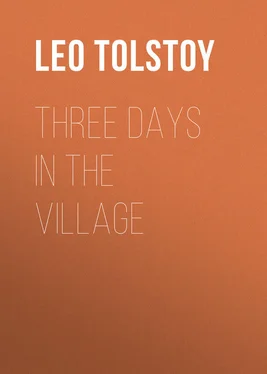The soldier's wife, having climbed down from the oven, continued to implore me to take steps to get her husband back. I told her it was impossible, and asked what property her husband had left behind with his brother, to keep her and the children. There was none. He had handed over his land to his brother, that he might feed her and the children. They had had three sheep; but two had been sold to pay the expenses of getting her husband off, and there was only some old rubbish left, she said, besides a sheep and two fowls. That was all she had. Her mother-in-law confirmed her words.
Конец ознакомительного фрагмента.
Текст предоставлен ООО «ЛитРес».
Прочитайте эту книгу целиком, купив полную легальную версию на ЛитРес.
Безопасно оплатить книгу можно банковской картой Visa, MasterCard, Maestro, со счета мобильного телефона, с платежного терминала, в салоне МТС или Связной, через PayPal, WebMoney, Яндекс.Деньги, QIWI Кошелек, бонусными картами или другим удобным Вам способом.
Not in the English sense, for there is no Poor-Law system entitling the destitute to demand maintenance.
One of the most depressing features of L. N. Tolstoy's environment is the large number of unemployed and beggars from the adjacent highway. They wait outside the house for hours every day for the coming of Leo Nikolayevich. The consciousness of his inability to render them substantial aid weighs heavily upon him, as does also the fact that, owing to insurmountable obstacles, he cannot even feed them, and allow them to sleep in the house in which he himself lives. These unfortunates surround Leo Nikolayevich at the steps, and besiege him with their importunate requests, just at the time when he seeks the fresh air and is most in need of mental rest and solitude after long-continued and strenuous mental labour. In view of this fact, the idea has occurred to some of Leo Nikolayevich's friends, of establishing in the village of Yásnaya Polyána a lodging- and eating-house for tramps, the use of which by the latter would save L. N. unnecessary trouble. The establishment of such premises – L. N. has viewed the idea very favourably – would at least afford some temporary relief to the wandering poor who are in dire need. At the same time the peasantry of Yásnaya Polyána would be relieved of the too heavy burden of supporting the passing unemployed described by Tolstoy in his article. Lastly, it would afford Tolstoy, in his declining years, considerable mental relief, which it would seem that he has more than deserved by his incessant labours on behalf of distressed mankind. Perhaps among those who read the present sketches some will be found who, prompted by the impulses animating the author, may desire to render some material help towards the practical realisation of the projected undertaking.
Contributions may be sent to the following address: V. Tchertkoff, Editor of the Free Age Press, Christchurch, Hants, Eng.












